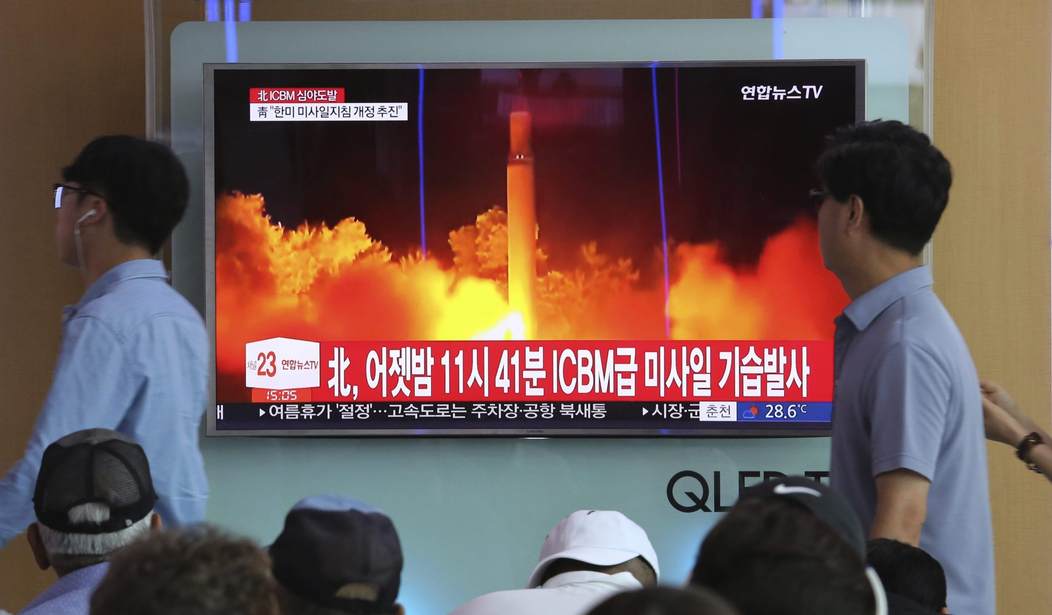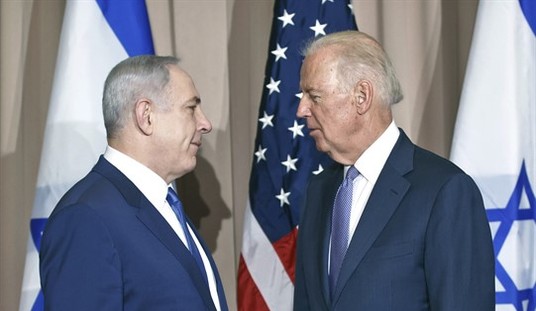As a general rule, there’s no call for obscene language in public discourse — especially from those who serve in the White House. By any workaday standard, Wednesday’s “profanity-laced rant” to the New Yorker by the new White House communications director, Anthony Scaramucci, was way out of line.
But when North Korea on Friday tested yet another intercontinental ballistic missile, and the U.S., United Nations and European Union all responded with the same old diplomatic robo-phrases — condemning, rejecting, expecting (we all know this routine) — it hit me that there might be at least one good use for such verbal talents as Scaramucci’s. Don’t spend that passion (or whatever it was) on trashing fellow Americans, or boosting circulation for the New Yorker. Target North Korea.
I’m only half kidding. As far as words might matter in dealing with North Korea, something other than the usual script is way overdue. Friday’s missile test was North Korea’s second ICBM launch this month, carried out in violation of multiple United Nations sanctions, and with braggart malevolence toward America and its allies. North Korean authorities described the previous ICBM launch, on July 4th, as a “gift package” which they said was “addressed to none other than the U.S.”
North Korea’s regime has a record that implies it should not be allowed to possess butter knives, let alone nuclear missiles. Actually, the Pyongyang regime has a record that ever more strongly signals it should not be allowed to exist at all, and the sooner it goes, the better. North Korea’s dynastic despotism, currently embodied in Kim Jong Un, has sustained itself over the years by enslaving its own people and terrorizing, abducting and murdering others; counterfeiting foreign currencies; peddling weapons; practicing nuclear extortion; and wheeling and dealing in nuclear and missile technology with networks including Pakistan, Syria and Iran.
Kim Jong Un has presided over the execution of his own uncle, the assassination with VX nerve agent of his half-brother, and the horrifying arrest and abuse that ultimately killed a young American tourist, Otto Warmbier. Since Kim Jong Un inherited power more than five years ago, following the death in Dec., 2011 of his father, Kim Jong Il, North Korea has carried out a staggering number of ballistic missiles tests, plus three of its five nuclear tests to date (one in 2013 and two in 2016, following tests under his father in 2006 and 2009). North Korea has already prepared the site for a sixth nuclear test, and is now amassing a nuclear arsenal and honing those ICBMs with which it is threatening to strike the United States.
In sum, a second North Korean ICBM test in a month is seriously bad news. This must stop.
And yet, when it comes to words, what message are we really sending North Korea? On we go, answering every missile and nuclear test with what has become a ritual response by the U.S. and other prominent voices of the so-called international community. There is by now a formula to it so familiar it might even qualify as reassuring to Pyongyang. Our leaders condemn, protest, and with a diplomatic delicacy that sounds ever more hallucinatory, they declare in the face of obvious realities that what is happening must not happen, and they invite North Korea to mind its manners.
Kim and his gang have heard it before. Cue the next missile or nuclear test…
Below are some excerpts of the U.S., UN and EU responses to Friday’s ICBM test. They give a pretty good sampling of the scene. I’ve appended a few of my own notes, in brackets and italics.
The White House press office released a statement by President Trump:
“The United States condemns this test and rejects the regime’s claim that these tests — and these weapons — ensure North Korea’s security. In reality they have the opposite effect.” [Nope. Quite demonstrably North Korea’s “reckless and dangerous actions” have worked out pretty well for Kim, at least so far. The more nuclear weapons North Korea piles up, and the more sophisticated the vehicles become for delivering them, the more daunting and dangerous the prospect of trying to dethrone the regime — even as the need to do so becomes more urgent.]
At the State Department, Secretary Rex Tillerson released a separate statement, in which he went an adverb beyond Trump’s condemnation of the missile launch, saying not only that the U.S. “condemns,” but that it “strongly condemns.” Tillerson added a refreshing riffle to this diplo-speak, rightly — though generically — calling out both China and Russia for their “unique and special responsibility for this growing threat to regional and global security.” Then he reverted to the usual porridge, adding:
“The United States seeks the peaceful denuclearization of the Korean peninsula and the end to belligerent actions by North Korea. As we and others have made clear, we will never accept a nuclear-armed North Korea nor abandon our commitment to our allies and partners in the region.” [Unfortunately, while the U.S. for years has been refusing to accept a nuclear-armed North Korea, North Korea has been equipping itself with nuclear arms. Reality is now spelled ICBM.]
Then there’s the UN, where Secretary-General Antonio Guterres weighed in on Friday, calling North Korea’s second ICBM launch in a month “again a manifest violation of Security Council resolutions [so what’s new?] and calling on North Korea’s tyrant (though the word he used was “leadership”) to be more tractable:
“The DPRK leadership must comply fully with its international obligations and work together with the international community to resolve the outstanding issues on the Korean peninsula.” [Yawn. Is he done yet?]
And of course there’s the ever optimistic European Union, which released a statement by the spokesperson that chided North Korea in terms more fitting for, say, Portugal — if Lisbon ever starts testing ICBMs:
“We expect the DPRK to refrain from any further provocative action that could increase regional and global tensions.” [They’ve got to be kidding. If there’s anything the EU ought to expect from North Korea at this stage, it’s maybe another nuclear test.]
In case North Korea missed the point, the EU statement further elaborated on EU expectations:
As the European Union, we expect the DPRK to comply without delay, fully and unconditionally, with its obligations under all relevant UN Security Council resolutions, and engage in a credible and meaningful dialogue aimed at pursuing the complete, verifiable and irreversible denuclearisation of the Korean peninsula through peaceful means. The European Union is ready to support such a process in consultation with key partners. [Didn’t the EU and the U.S. under President Obama just go through that kind of charade with Iran, which is now testing missiles for no evident purpose except carrying the nuclear weapons that Tehran promised under the 2015 nuclear deal it would not pursue?]
To be sure, we’ve recently heard a much stronger statement from the U.S. ambassador to the UN, Nikki Haley, who spoke up at an emergency meeting of the Security Council to say:
“The United States is prepared to use the full range of our capabilities to defend ourselves and our allies. One of our capabilities lies with our considerable military forces.”
Except that statement by Haley was made in response to North Korea’s July 4th ICBM launch, and, however bracing, it clearly did not deter the second ICBM launch, which just took place on July 28th. Now Haley is seeking yet another emergency meeting of the UN Security Council — which, with plenty of ceremony surrounding a record of abject failure, has been holding emergency meetings, producing statements and passing resolutions condemning and imposing sanctions on North Korea since 2006.
Almost certainly it is deeds, not words, that will be required to stop North Korea’s obscene regime, by one way or another taking it down. But to whatever extent the verbal warnings of America and its allies might have any deterrent effect, surely it is time to send a far, far stronger message. Something different, something less comfortably familiar to Pyongyang.
It’s now eight years since President Obama responded to a precursor North Korean test for today’s ICBMs — a 2009 erstwhile satellite launch — with phrases that were then reduced by his own passivity to complete gibberish: “Rules must be binding. Violations must be punished. Words must mean something. The world must stand together… [Etc.]”
Surely it’s time for a fresh script. Thus did Scaramucci’s New Yorker rant come to mind.
Not that Scaramucci’s approach need be the only way to go. If American authorities prefer statements in better taste, there’s always Shakespeare, whose plays provide a trove of superb threats and insults. One of my favorites, from “The Winter’s Tale,” runs thus:
O thou tyrant!
Do not repent these things, for they are heavierThan all thy woes can stir; therefore betake thee
To nothing but despair. A thousand knees
Ten thousand years together, naked, fasting,
Upon a barren mountain and still winter
In storm perpetual, could not move the gods
To look that way thou wert.
No doubt North Korea’s thugs might find it somewhat baffling, were officials of the U.S. or EU (I think we can omit the UN) to deviate so far from the usual script as to transmit such a message. But that’s precisely the point. The predictable robo-condemnations, however ardently meant, have become a farce. Why not give something different a whirl?








Join the conversation as a VIP Member